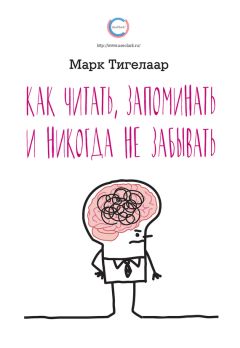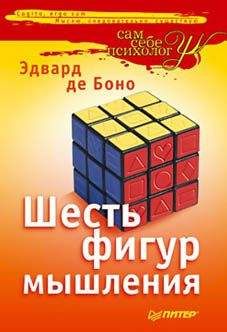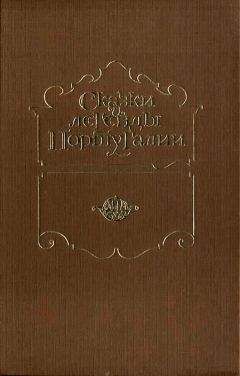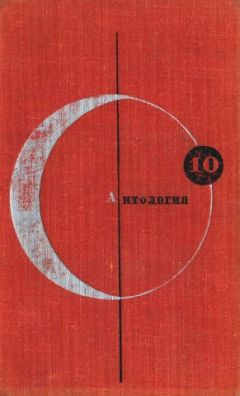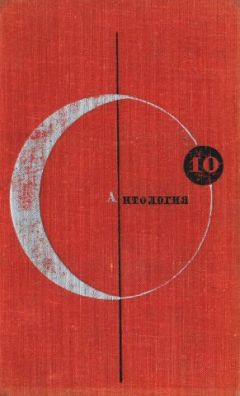Ознакомительная версия.
Представительство в России и СНГ
www.useclark.ru
Хотите достичь предельной ясности в работе, когда вокруг все перегружены информацией?
Мы создали 4 мощных учебных курса, которые помогают сделать процесс работы с информацией легче и качественнее.
Зайдите по ссылке www.useclark.ru/training и получите СКИДКУ 10 % на любое мероприятие UseClark® Russia, используя промокод USEBOOK10
UseClark® Russia
www.useclark.ru
[email protected]
+7 (495) 540-42-82
facebook.com/useclarkrussia
vk.com/useclarkrussia
twitter.com/useclarkrussia
instagram.com/useclarkrussia
Эту книгу хорошо дополняют:
Однозадачность
Успевайте больше, фокусируясь только на одном деле
Девора Зак
Скорочтение
Как запоминать больше, читая в 8 раз быстрее
Питер Камп
Помнить все
Практическое руководство по развитию памяти
Артур Думчев
Память не изменяет
Задачи и головоломки для развития интеллекта и памяти
Анхельс Наварро
Избирательное нарушение способности к овладению навыком чтения и письма при сохранении общей способности к обучению. Прим. ред.
Даже появилось выражение «много букв, не осилил».
Некоторые думают, что могут это делать благодаря фотографической памяти. Но, если вы не можете воспроизвести буквально все, что находится на одной странице, ваша память не фотографическая.
Ирония в том, что в этой книге больше десяти страниц. Именно поэтому в конце каждой главы есть краткое содержание
Конечно, это не всегда так. Тем, у кого наблюдалось нарушение мозговой деятельности, тест даст хорошее представление о состоянии памяти. Для всех остальных это утверждение верно.
Кроме случаев серьезного заболевания, например болезни Альцгеймера, но для удобства чтения не будем в это вдаваться.
Автор имеет в виду один из самых трагичных эпизодов в истории США – теракт 11 сентября 2001 года (9.11.2001). Прим. ред.
Можно предположить, что по этой причине чемпионов по запоминанию не жалуют в казино.
Вы также можете узнать больше об ассоциативных картах в моей книге More from Your Brain («Как добиться от вашего мозга большего»).
Не хочу хвастаться, но поделюсь занятным примером из жизни. На недавнем моем тренинге было 65 студентов. Я использовал этот метод, чтобы преобразовать их имена в изображения, и смог вспомнить 63 из 65 имен во время занятия. Если вы начнете практиковать эту технику, то заметите, как улучшится ваша способность воспроизводить имена.
Альберт Эйнштейн работал клерком в патентном офисе, и многие считали эту работу абсолютно не соответствующей его интеллектуальному уровню. Возможно, не вопреки, а благодаря такой работе к нему пришло столько озарений.
Ирония в том, что именно в этот момент, когда я пишу эти строки, на часах 23:42, заканчивается мой 14-часовой рабочий день. Заметка для меня самого – остановись!
Следуя принципу «делай то, чему учишь», я сократил эту книгу на 60 процентов.
Hilbert & Lopez (2011). «The world’s technological capacity to store, communicate and compute information», Science Express, Feb. 10.
Compernolle, T. (2014). Ontketen je brein.
Kluten, M. (2014). Train je brein nu.
Kak, A. V. (1981). «Relationships between readability of printed and CRT-displayed text», Proceedings of Human Factors Society – 25th Annual Meeting (pp. 137–140).
Mangen, A., Walgermo, B. R. & Brønnick K. (2013). «Reading linear texts on paper versus computer screen: Effects on reading comprehension», International Journal of Educational Research, 58 (pp. 61–68).
Wäslund, E., Reinikka, H., Norlander, T. & Archer, T. (2005). «Effects of VDT and paper presentation on consumption and production of information: Psychological and physiological factors», Computers in Human Behavior, 21 (pp. 377–394).
Ackerman, R., Goldsmith, M. (2011). «Metacognitive Regulation of Text Learning: On Screen Versus on Paper», Journal of Experimental Psychology Applied, 17 (pp. 18–32).
Quote from Paul van Wingeren.
Ingraham, C. (2014). «The solutions to all our problems may be buried in PDFs that nobody reads», Washington Post.
http://www.theverge.com/2014/2/14/5411934/youre-not-going-to-read-this/.
Revlin, R. (2012). Cognition: Theory and Practice. Worth Publishers.
Wong, L. (2014). Essential Study Skills. Cengage Learning.
Andrade, J. (2009). «What Does Doodling do?» Applied Cognitive Psychology, www.interscience.wiley.com.
Compernolle, T. (2014). Ontketen je brein. Lannoo.
Wong, L. (2014). Essential Study Skills. Cengage Learning.
Brown, C.M. (1988). Human-computer interface design guidelines. Ablex Publishing.
Cohen, G. (1990). «Why is it difficult to put names to faces?» British Journal of Psychology, 81 (pp. 287–297).
Bouwer, G. H., Clark, M. C., Lesgold, A. M. & Winzez, D. (1969). «Hierarchical retrieval schemes in recall of categorical word lists», Journal of Verbal Learning and Verbal Behaviour, 8 (pp. 323–343).
Bouwmeester, S., de Bruin, A., Camp, G., Engelen, J., Goossens, N., Tabbers, H. & Verkoeijen P. (2012). «Toolbox: 10 oefenstrategieën uit de geheugenpsychologie voor de klas», Erasmus Universiteit Rotterdam.
Bouwmeester, S., de Bruin, A., Camp, G., Engelen, J., Goossens, N., Tabbers, H. & Verkoeijen P. (2012). «Toolbox: 10 oefenstrategieën uit de geheugenpsychologie voor de klas», Erasmus Universiteit Rotterdam.
Bouwmeester, S., de Bruin, A., Camp, G., Engelen, J., Goossens, N., Tabbers, H. & Verkoeijen P. (2012). «Toolbox: 10 oefenstrategieën uit de geheugenpsychologie voor de klas», Erasmus Universiteit Rotterdam.
Rawson, K. A. & Kintsch, W. (2005)» Rereading Effects Depend on Time of Test», Journal of Educational Psychology, 97 (pp. 70–80).
http://www.bbc.com/future/story/20141202-hack-your-memory-learn-faster/.
Cohen, G. (1990). «Why is it difficult to put names to faces?», British Journal of Psychology, 81 (pp. 287–297).
Konkle, T., Brady, T. F., Alvarez, G. A. & Olivia, A. (2010). «Scene memory is more detailed than you think: the role of categories in visual long-term memory», Psychol Sci.
Tigchelaar, M.S. (2015). Haal meer uit je hersenen. Bert Bakker.
Sparrow, B., Liu J., Wegner D. M. (2011). «Google Effects on Memory: Cognitive Consequences of Having Information at Our Fingertips», Science, vol. 333, no. 6043 (pp. 776–778).
Wieth, M. B. & Zacks, R. T. (2011). «Time of day effects on problem solving: When the non-optimal is optimal», Thinking & Reasoning, 17 (pp. 387–401).
Mann, S. & Cadman, R. (2013). «Being bored at work can make us more creative», ScienceDaily, 9 January 2013.
Oppezzo, M. & Schwartz, D. L. (2014). «Give Your Ideas Some Legs: The Positive Effect of Walking on Creative Thinking», Journal of Experimental Psychology: Learning, Memory, and Cognition, vol. 40, no. 4 (pp. 1142–1152).
Vohs, K. D., Redden, J. P. & Rahinel, R. (2013). «Physical Order Produces Healthy Choices, Generosity, and Conventionality, Whereas Disorder Produces Creativity», Psychological Science, 24(9) (pp. 1860–1867).
Brandhof, J. W. (2007). Gebruik je hersens. Brainware.
Pol. M. (2009). Nog Slimmer. VU University Press.
Pencavel, J. (2014). «The Productivity of Working Hours», Institute for the Study of Labor.
Brandhof, J. W. (2007). Gebruik je hersens. BrainWare.
Rock, D. (2009). Your Brain at Work: Strategies for Overcoming Distraction, Regaining Focus, and Working Smarter All Day Long. Harper Business.
Bahrick, H. P., Bahrick, L. E., Bahrick, A. S. & Bahrick, P. E. (1993). «Maintenance of Foreign Language Vocabulary and the Spacing Effect», Psychological Science, vol. 4, no. 5 (pp. 316–321).
Delaney, P. F., Verkoeijen P. P. & Spirgel, A. (2010). «Spacing and testing effects: a deeply critical, lengthy and at times discursive review of the literature», Psychology of learning and motivation, 53 (pp. 63–147).
Cepeda, N. J., Pashler, H., Vul, E., Wixted J. T. & Rohrer D. (2006). «Distributed practice in verbal recall tasks; A review and quantitative synthesis», Psychological Bulletin, 132 (pp. 354–380).
Rawson, K. A. & Kintsch, W. (2005). «Rereading Effects Depend on Time of Test», Journal of Educational Psychology, 97 (pp. 70–80).
Rawson, K. A. & Kintsch, W. (2005). «Rereading Effects Depend on Time of Test», Journal of Educational Psychology, 97 (pp. 70–80).
Rawson, K. A. & Kintsch, W. (2005). «Rereading Effects Depend on Time of Test», Journal of Educational Psychology, 97 (pp. 70–80).
Tigchelaar, M. S. (2015). Haal meer uit je hersenen. Bert Bakker.
Ознакомительная версия.
